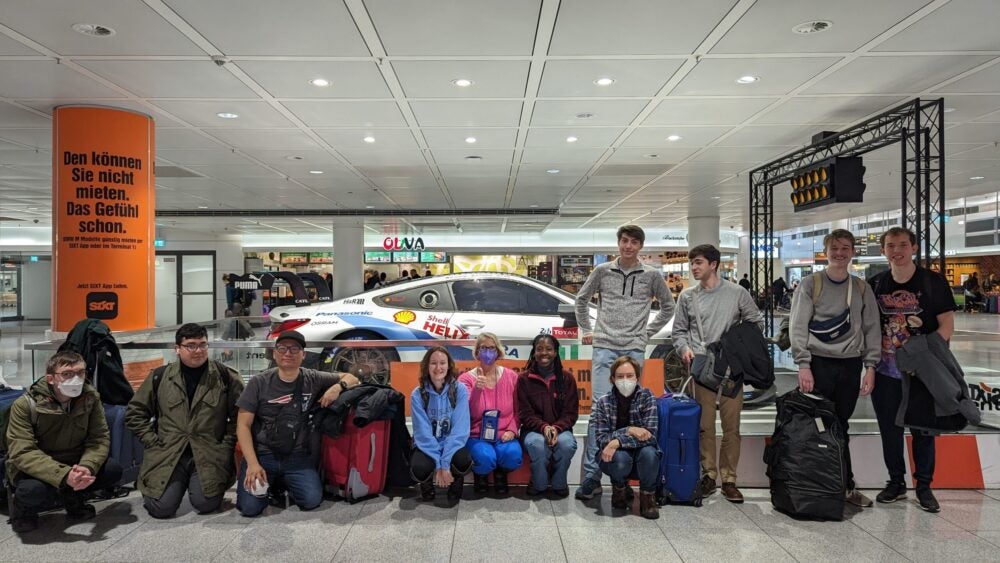
After a long hiatus due to pandemic-related travel restrictions, the German IEP was finally able to realize its annual DAAD- and Max Kade-sponsored “Germany Today: Science, Technology, Culture” J Term study tour in January 2023 with a small yet enthusiastic group of students. Just after the start of the new year, students began with a three-day preparation unit with Dr. Shawna Iula on campus in Kingston during which they set personal goals for their time abroad, learned about German cultural practices and history, researched background information on the companies and institutions they would visit, read a story set in one of the stops on the tour and practiced interviewing skills in German. On January 6th, students embarked on the immersion part of the experience, which lasted from January 7th to the 20th.
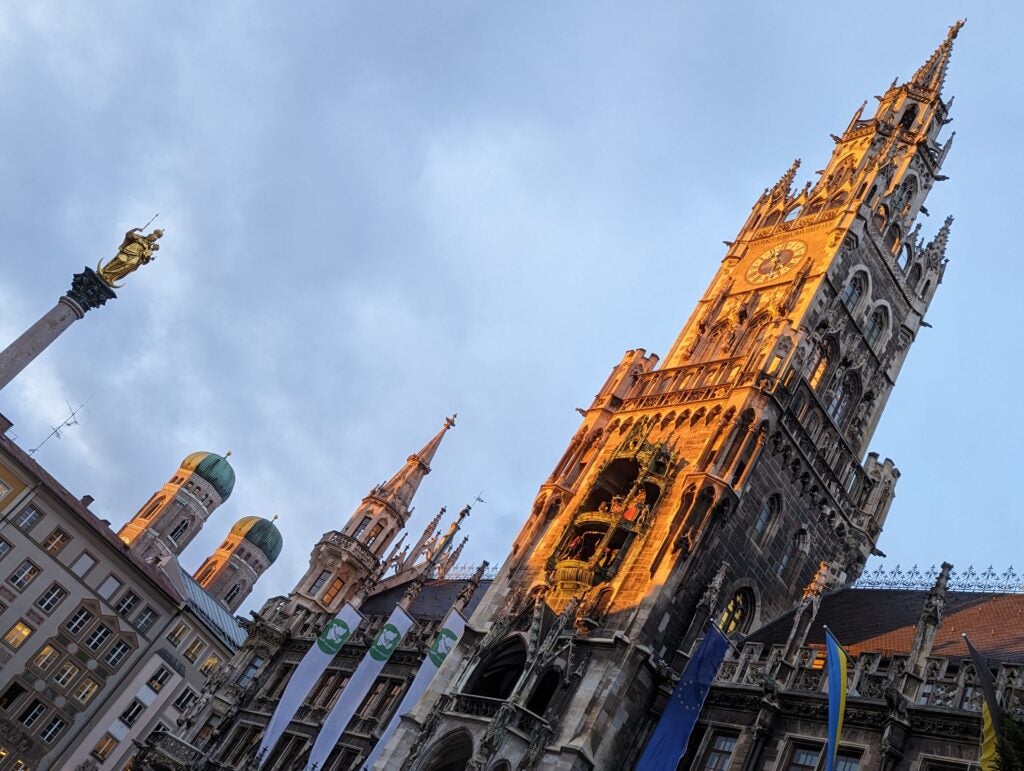
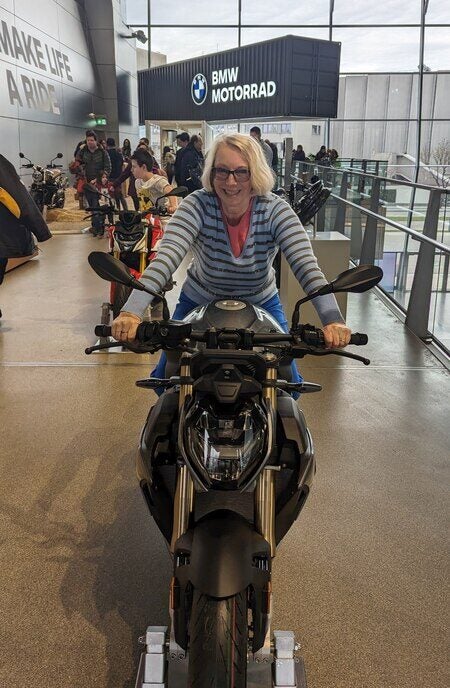
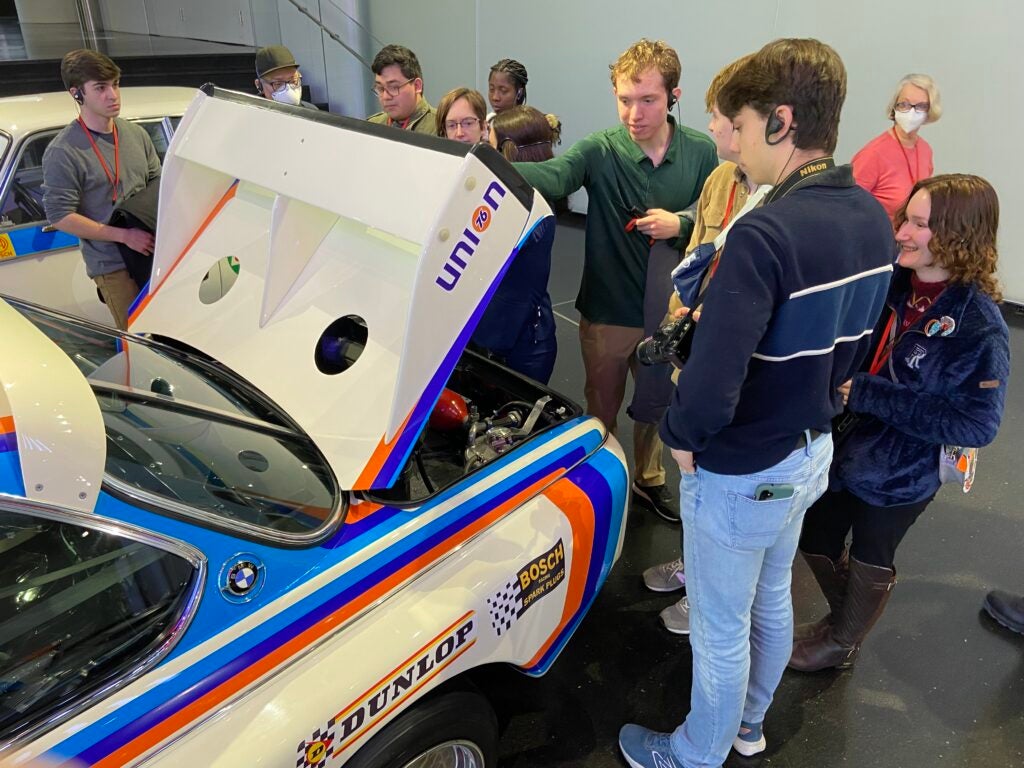
The two weeks that followed were a whirlwind of information, city tours in each location, activities, traditional foods and meeting new people. The trip began in Munich, where students spent the longest leg of their journey exploring and learning all about the city and some IEP partner companies. Highlights included visits to the BMW Museum/Welt and the Deutsches Museum, a tour of MTU Aero Engines, a guided tour of the Max Beckmann exhibit at the Pinakothek, a stroll through Munich’s English Gardens, and a meet-up with URI and partner university alumni at the Wirtshaus zur Brez’n. After such a long time without visiting our alumni abroad, the IEP was grateful for this dinner, as well as the other two that followed in Frankfurt and Braunschweig, all of which were graciously hosted by URI Alumni Foundation’s Vice President for Development Jeff Cabral.
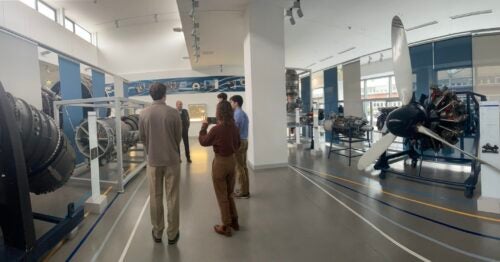

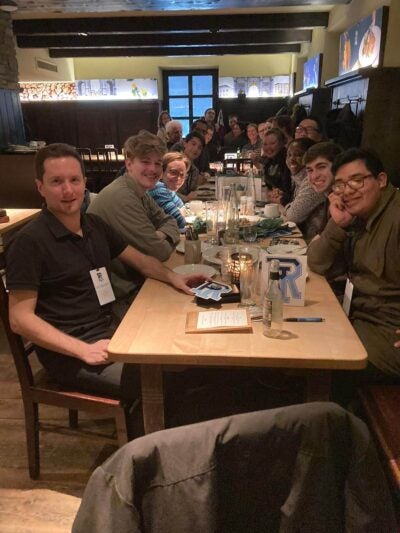
Next, the group spent two action-packed days each in Stuttgart, Heidelberg, Darmstadt and Braunschweig. In Stuttgart, students toured the Porsche and Mercedes-Benz Museums, ate at VfB Stuttgart’s club restaurant, checked out the international offerings at the famous Markthalle, and had a meet-and-greet with local students from the Duale Hochschule Baden-Württemberg.
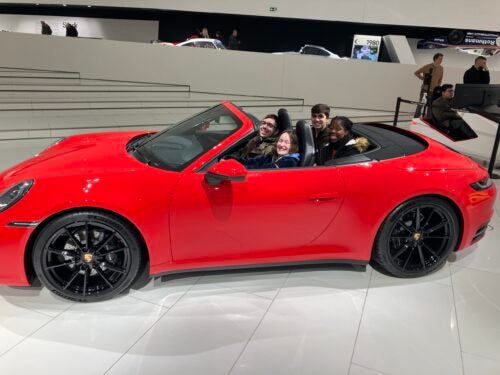
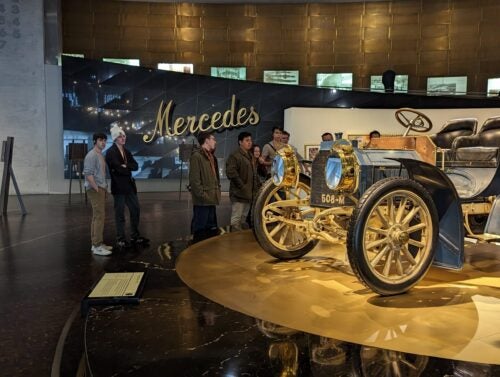
Heidelberg presented students with a deep dive into an important phase in German history with a visit to the Friedrich Ebert Foundation. They also wandered Heidelberg Castle’s grounds, discovered how medicinal advice, practices and treatments evolved over time at the on-site Apothecary Museum, stopped by the local zoo and went antiquing in the heart of the city using their German skills. This part of the study tour was made possible by help from Gunnar Schanno of the Steuben-Schurz Society.
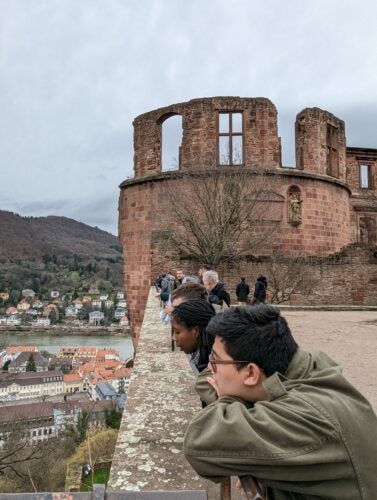
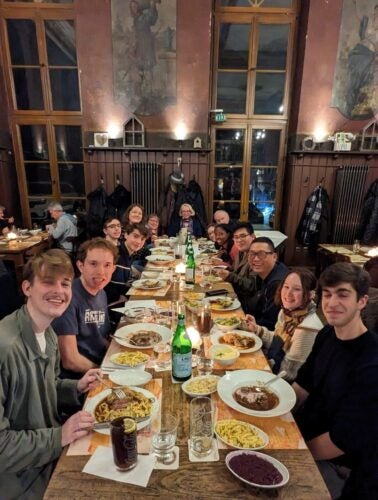
In Darmstadt, the course participants were welcomed by Julia Fitzthum and Christian Tischer from TU Darmstadt’s International Relations and Mobility Office. They led the group around the city and TU Darmstadt’s campuses and introduced the URI students to the incoming TUDa exchange students who will be at URI in the fall. Fourth-year German IEP and mechanical engineering student Katie Field gave a presentation about her current research project in the Paper Manufacturing and Mechanical Process Engineering Lab, where she seeks to protect fawns from being killed by tractors through the use of scarecrows designed with paper. Students also took a peek inside the ETA Fabrik (Energy Technologies and Applications in Production Lab) and found out more about how the high-tech machining processes there could operate sustainably by optimizing energy and resource efficiency and by shifting resources to where they are needed within the space in response to real-time events. Featured in this city’s activities was an exploration of the Landeskunde Museum, rich with exhibits of historical, cultural, anthropological and biological importance. Both evenings during the stay in Darmstadt included evenings spent in Frankfurt, including a tour of the Römer and the Neue Altstadt there hosted by Steuben-Schurz’s Juliane Adameit and a very well-attended alumni dinner at Apfelwein Solzer.
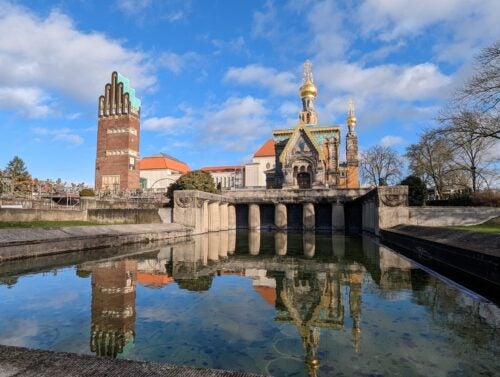
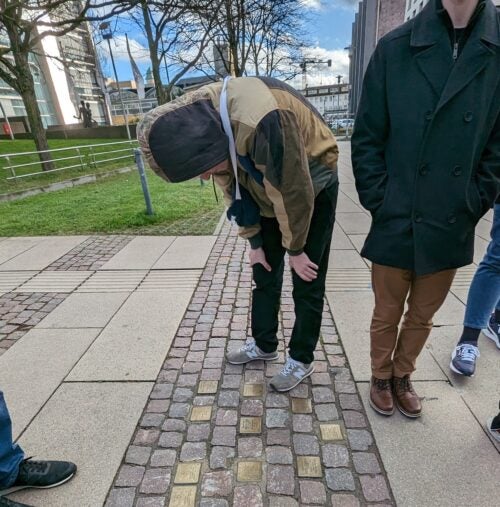
Students also took a peek inside the ETA Fabrik (Energy Technologies and Applications in Production Lab) and found out more about how the high-tech machining processes there could operate sustainably by optimizing energy and resource efficiency and by shifting resources to where they are needed within the space in response to real-time events. Featured in this city’s activities was an exploration of the rich Landeskunde (Hessian State) Museum, full of exhibits of historical, cultural, anthropological and biological importance. Both evenings during the stay in Darmstadt included evenings spent in Frankfurt, including a tour of the Römer and the Neue Altstadt there hosted by Steuben-Schurz’s Juliane Adameit and a well-attended alumni dinner at Apfelwein Solzer.
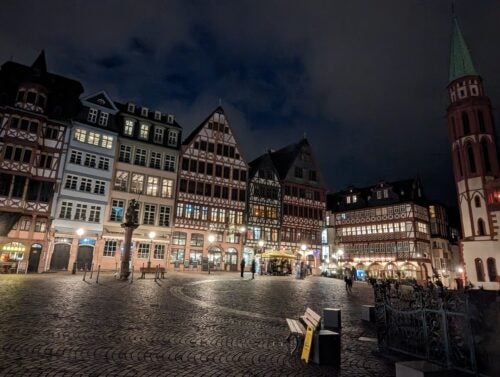
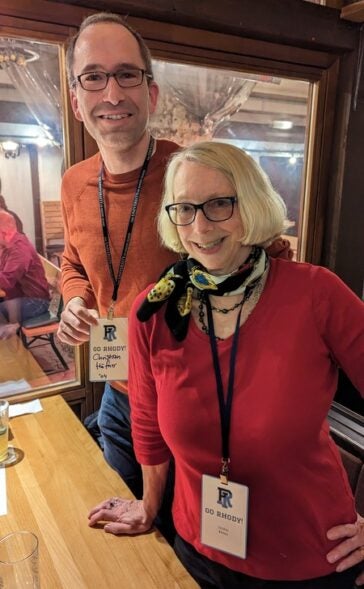
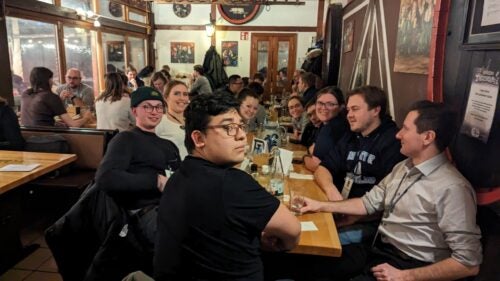
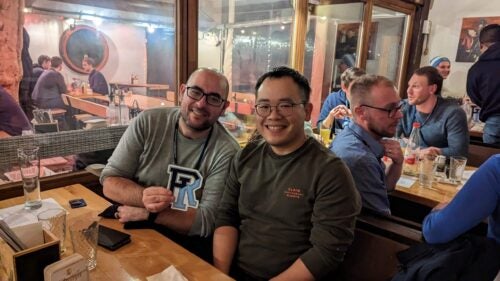
The time that students spent in Braunschweig offered them a similar level of exposure as to what university life as an IEPer will be like there. TU Braunschweig’s Anne-Kathrin Kaiser organized a get-together with incoming TUBS exchange students who will come to Kingston during the next academic year. They were also able to check out some of the lab spaces on campus. Professor Georg Garnweitner, head of the Institute of Particle Technology (iPAT), along with IEP students Ailill Smith and Melissa Scheider, both there for their semester of study, presented their current research projects within iPAT. Ailill’s focus is on lithium ion batteries and how they can be made more safe, sustainable and economical, while Melissa’s research involves how drug delivery can be made more efficient. On the second day, participants went on a factory tour of Volkswagen’s plant in Wolfsburg, where they witnessed people and robots actively working in beautiful harmony on all stages of the production line. A final URI/exchange alumni dinner happened in Braunschweig at the Hotel Landhaus Seela, again yielding a wonderful turnout.
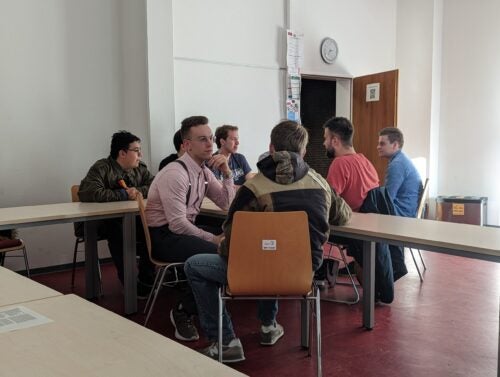
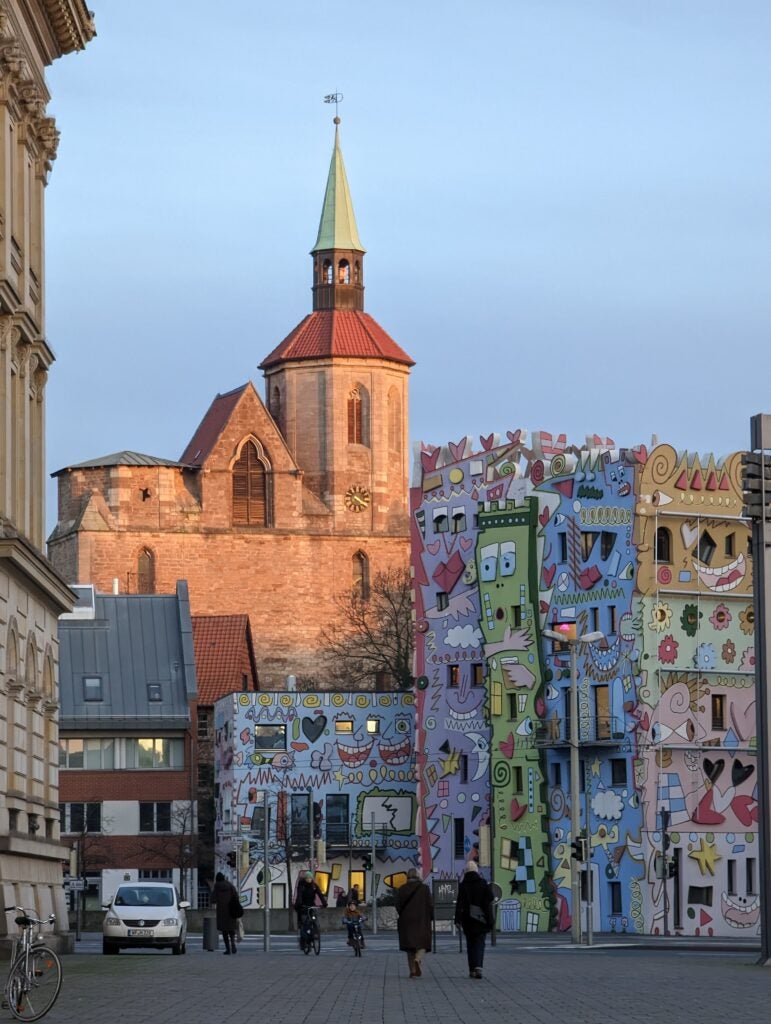
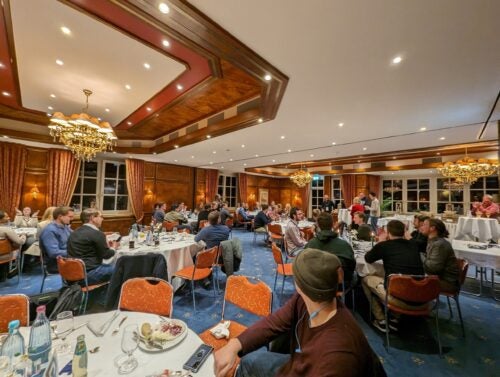
The study tour ended with a day-long stop in the northern port city of Hamburg. Here, part of the group visited DESY (the German Electron Synchrotron), a national research center that operates particle accelerators to learn more about the structure of matter. Meanwhile, the other third visited URI’s International Business Program partner HAW Hamburg for an informal campus tour, followed by some time observing the historic Speicherstadt (a UNESCO World Heritage Site) and checking out the Maritime Museum. The evening ended with a ride up the Elbphilharmonie’s giant escalator – the largest curved one in the world – up to the viewing platform and one last dinner together at the Old Commercial Room, known to celebrities and Hamburg locals alike.
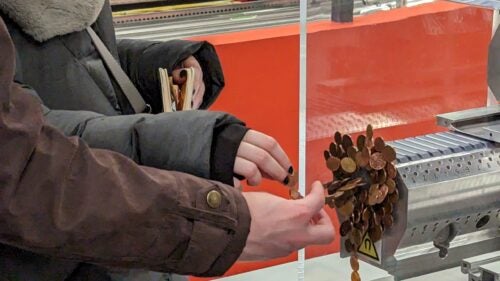
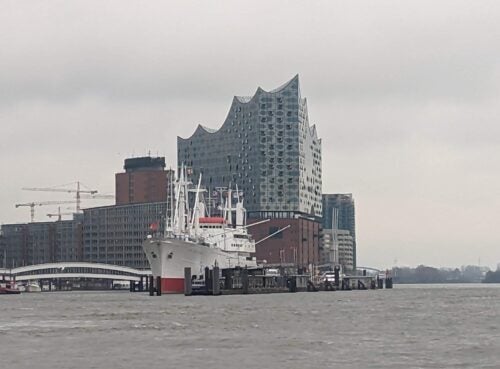
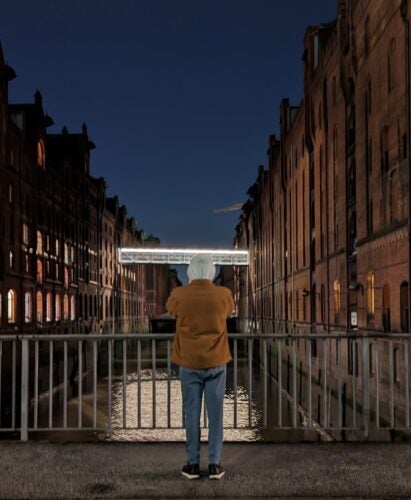
The trip was a fantastic academic growth opportunity for students. It encouraged its participants to get outside of their comfort zones and put their developing German skills to the test by interviewing locals and accomplishing tasks in local establishments, helped them to understand how foreign cultures may compare to their own through intercultural competency reflection assignments, fostered a newfound confidence in handling new situations and hurdles while abroad, and hopefully sparked great curiosity within the students for future global travel. For more on this study tour from students’ perspectives, feel free to scroll through the class’s blog, found here.
